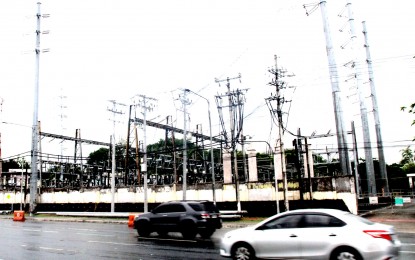
(PNA file photo by Rico Borja)
MANILA – Senator Grace Poe on Monday said pending legislations will mitigate the impact of power outages and power rate hikes in the future.
Amendments to the Public Service Act will lead to improved services and lower cost of basic services which Filipinos badly need amid the Covid-19 pandemic, Poe said in a statement.
"Access to reliable and affordable energy is essential not only for addressing the pandemic, but also for accelerating recovery and building back better," she added.
Lawmakers claim that ambiguity in the definition of public utility, that is often used interchangeably with public service, is limiting the number of players which at times provide unreliable and expensive consumer services.
Among the measures are Senate Bill No. 2094 that will amend Commonwealth Act No. 146 or the Public Service law.
Under the bill, the National Economic and Development Authority, through consultation with the Philippine Competition Commission and other concerned agencies, may recommend to Congress the classification of a public service as a public utility.
Any of the 14 appropriate administrative agencies may establish and enforce a methodology for setting rates, taking into account all relevant considerations, including the efficiency of the regulated public service.
The proposal provides that the rates must allow the recovery of prudent and efficient costs and a reasonable rate of return.
The agencies are the Civil Aeronautics Board, Civil Aviation Authority of the Philippines, Department of Energy, Department of Natural Resources, Department of Information and Communications Technology, Department of Transportation, Energy Regulatory Commission, Land Transportation Franchising and Regulatory Board, Land Transportation Office, Local Water Utilities Administration, Maritime Industry Authority, Metropolitan Waterworks and Sewerage System, National Telecommunications Commission, and National Water Resources Board.
Lackluster performance by a public service corporation, including the commission of forbidden or prohibited acts, shall be punished by a fine not exceeding PHP2 million or imprisonment of up to 12 years.
The President may take such appropriate action including the suspension of a covered transaction involving critical infrastructure that threatens to impair national security, the bill states.
The bill identifies the critical infrastructures as transmission and distribution of electricity, water pipeline distribution systems and sewerage pipeline systems, telecommunications, and transportation.
Foreign state-owned enterprises are prohibited from owning capital in any public service classified as critical infrastructure and foreign nationals are not allowed to own more than 40 percent of capital in public services engaged in the operation and management of critical infrastructure unless the country of such foreign national accords reciprocity to Philippine nationals under foreign law, treaty or international agreement.
Last year, the House of Representatives approved an amendment that no other business or service shall be deemed a public utility unless otherwise provided by law. (PNA)
